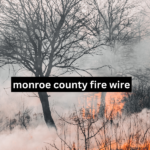In a world where tragedy often feels distant, the story of Jillian Ludwig has brought the concept of loss crashing into our hearts and homes. A vibrant life cut short, her case has become more than just a news headline; it’s a catalyst for change, sparking conversations that challenge our perceptions about grief, community support, and resilience in the face of adversity. As we delve into this poignant narrative, we uncover how Jillian’s legacy is inspiring a collective awakening—urging us to confront uncomfortable truths while fostering deeper connections within our communities. Join us as we explore how one young woman’s tragic journey is not only reshaping individual lives but also transforming societal attitudes toward loss and healing in profound ways.
Introduction to Jillian Ludwig’s case and the impact it has had on the community
The tragic case of Jillian Ludwig has left an indelible mark on the community. Her untimely death, a heart-wrenching event, has sparked conversations about accountability and justice that many never anticipated. As her family seeks to hold those responsible to account through a substantial $50 million wrongful death lawsuit, the ripple effects of this tragedy are being felt far beyond their immediate circle. The quest for answers is shedding light on deeper societal issues and reshaping how we view responsibility in accidents and tragedies. What began as a personal loss is evolving into a powerful movement for change within the community—one that calls for reflection, support, and action.
Background information on Jillian Ludwig and her tragic death
Jillian Ludwig was a vibrant young woman whose life was tragically cut short. A dedicated student at Belmont University, she embodied hope and potential.
On that fateful day in August 2021, her journey ended suddenly during what should have been an ordinary outing. The circumstances surrounding her death left the community in shock.
Witnesses described chaos as events unfolded near campus. It wasn’t just another incident; it resonated deeply with many who knew her or were touched by her spirit.
Friends and family remember Jillian for her kindness, laughter, and passion for life. Her absence has created a void felt not only by those close to her but also throughout Nashville.
The impact of losing someone so promising has rippled through the hearts of countless individuals who strive to keep her memory alive amidst sorrow.
Details of the $50M wrongful death lawsuit filed by her family
The tragic loss of Jillian Ludwig has led her family to file a staggering $50 million wrongful death lawsuit. This legal action is more than just a quest for financial compensation; it seeks justice for a life cut short too soon.
The lawsuit names several defendants, including Metro Nashville and Belmont University. The allegations point to negligence that contributed to the circumstances surrounding her untimely death.
Her family asserts that the institutions failed in their duty of care. They believe this negligence directly impacted not only Jillian’s safety but also the well-being of others within the community.
This case highlights deeper issues around accountability and responsibility among educational institutions and local authorities. As details unfold, many are watching closely, recognizing its potential ripple effects throughout similar cases nationwide.
Analysis of the defendants named in the lawsuit (Metro Nashville, Belmont University, etc.) and their response to the lawsuit
Jillian Ludwig’s tragic death has drawn the attention of multiple defendants, including Metro Nashville and Belmont University. Each entity faces scrutiny regarding their responsibilities on that fateful day.
Metro Nashville, as a city government body, must address public safety protocols. Critics question whether adequate measures were in place to prevent such accidents. Their response reflects an intention to cooperate while also emphasizing due process.
Belmont University is similarly challenged. As an educational institution, it bears some responsibility for the well-being of its students off-campus. The university asserts it adheres to all relevant laws but acknowledges the emotional weight of this case.
Both defendants have emphasized their commitment to transparency during legal proceedings. Nevertheless, community members remain watchful, eager for answers and accountability as they navigate this painful chapter together.
Examination of how this case is reshaping community perspectives on accountability for accidents and tragedies
Jillian Ludwig’s tragic death has sparked a significant shift in how the community views accountability. People are beginning to recognize that negligence often plays a pivotal role in accidents.
This case highlights the importance of holding institutions accountable. Residents now question whether safety protocols at places like Belmont University and Metro Nashville were truly adequate. They wonder what could have been done differently to prevent such heart-wrenching events.
Conversations around liability are becoming more prominent. Many community members feel empowered to demand change, fostering an environment where voices can be heard regarding safety concerns.
As this case unfolds, it serves as a catalyst for broader discussions on responsibility. The emotional weight of loss is prompting families and friends to seek justice not just for themselves but also for others who may face similar tragedies in the future.
Interviews with members of the community, legal experts, and those involved in the case to gather different perspectives
Community members are grappling with the emotional fallout from Jillian Ludwig’s tragic death. Many express a deep sense of loss and anger, questioning how such incidents could occur in their neighborhoods. One local resident shared, “We need to hold those responsible accountable.”
Legal experts offer insights into the complexities of the wrongful death lawsuit. A prominent attorney noted that cases like this often spark wider discussions about safety standards in public spaces. They emphasize that accountability is crucial for preventing future tragedies.
Those directly involved in the case reflect on its broader implications as well. An advocate representing Jillian’s family mentioned how critical it is for communities to unite during these trying times, ensuring that victims are not forgotten.
Each perspective adds layers to an already intricate narrative, demonstrating just how deeply intertwined grief and justice can be within a community facing tragedy.
Discussion of potential outcomes and implications of this lawsuit for similar cases in the future
The lawsuit filed by Jillian Ludwig’s family could set a significant precedent. If they succeed, it might encourage other families facing similar tragedies to pursue legal action.
Legal experts suggest that outcomes from this case will influence how institutions manage liability in the future. Increased scrutiny on safety protocols may become the norm as communities demand better accountability.
Moreover, if the jury rules in favor of the plaintiffs, we might see a ripple effect across various sectors. Organizations may adopt stricter measures to protect individuals and prevent accidents.
This case also highlights the importance of transparency. Victims’ families often seek answers about what went wrong. The outcome could push for more open communication between institutions and communities regarding safety issues.
As conversations unfold around this case, many are left wondering how it will reshape public perception surrounding responsibility during tragic events.
Ways in which communities can come together to support victims and their families during times of loss and tragedy
Communities can play a crucial role in supporting victims and their families during times of loss. A compassionate response often begins with a simple gesture, like offering meals or organizing meal trains to ease everyday burdens.
Support groups provide safe spaces for sharing feelings and experiences. These gatherings foster connection, allowing individuals to grieve together while finding strength in unity.
Fundraisers can also be impactful. Organizing events that raise money helps alleviate financial stress for affected families dealing with unexpected expenses.
Community members should consider volunteering time or resources, whether through counseling services or donations to local charities focused on grief support.
Creating memorials honors the lost while reminding everyone of the importance of compassion. Such acts unite people under shared values of empathy and remembrance, transforming individual sorrow into collective healing.
–
Jillian Ludwig’s case has undoubtedly struck a chord within the community, igniting conversations about accountability and safety. Her tragic death resonates deeply with those who knew her and even those who didn’t. The $50 million wrongful death lawsuit filed by her family highlights serious concerns regarding the responsibility of institutions like Metro Nashville and Belmont University.
As the details unfold, it’s clear that this situation transcends legal battles; it reflects a collective need for change in how we address accidents and tragedies in our communities. Conversations sparked by Jillian’s story are reshaping perceptions on what accountability looks like when lives are lost due to negligence.
Members of the community have begun actively engaging in discussions surrounding safety measures, highlighting an increased awareness around issues that previously may have gone unnoticed. Legal experts weigh in, suggesting that outcomes from this case could set precedents affecting similar situations down the line.
Support systems for victims’ families can emerge stronger amidst such heartbreaks. Community gatherings, support groups, or fundraising initiatives serve as powerful reminders of unity during times of sorrow. As people rally together to honor Jillian Ludwig’s memory, they create spaces where healing can begin—spaces where no one feels alone amid their grief.
The lasting impact of Jillian’s tragedy will continue to resonate beyond courtroom decisions; it will shape dialogues about loss and resilience within communities everywhere affected by similar stories.






